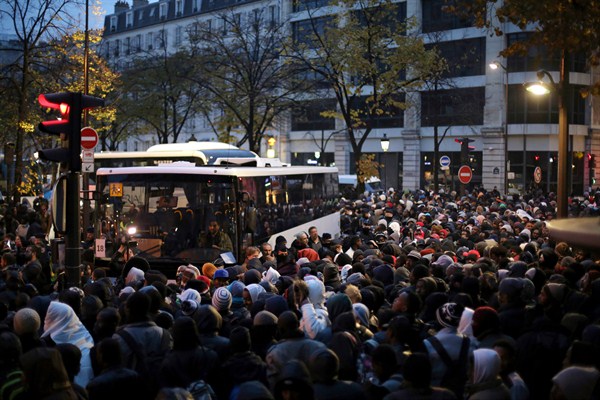When French authorities dismantled the migrant camp in Calais known as the Jungle in late October, many asked what would happen to the encampment’s 9,000 residents. The answer was not long in coming: Rather than relocating to government-run shelters, many simply swelled the ranks of France’s other migrant encampments that had until now escaped the glare of international press coverage.
Calais is far from being the only site of France’s migrant crisis. Since June 2015, French police have demolished some 30 makeshift encampments—home to thousands of migrants, primarily from Afghanistan, Ethiopia and Sudan—in Paris. But the crisis worsened following the Jungle’s closure. An encampment around the Stalingrad metro station in northern Paris quickly grew to massive proportions. It was evacuated last week, throwing the fates of some 3,800 more migrants into uncertainty.
While the Stalingrad encampment has now been largely cleared, it’s almost guaranteed that more will pop up; approximately 100 migrants are arriving in Paris daily. Videos have surfaced of police in riot gear clashing with migrants as they began the demolition process.

